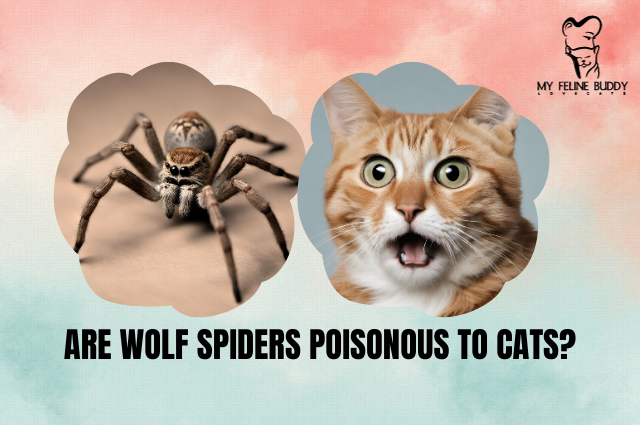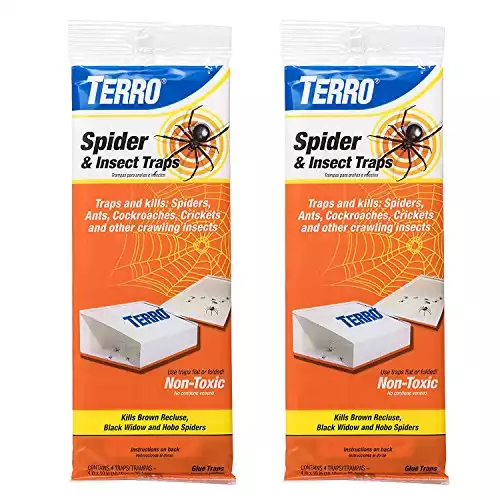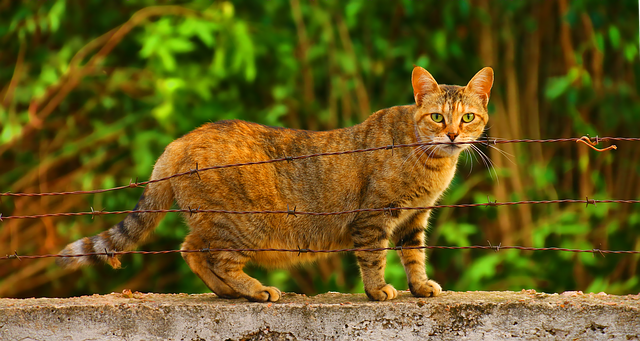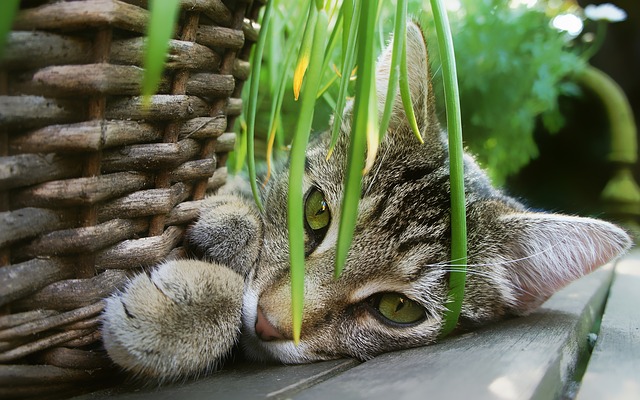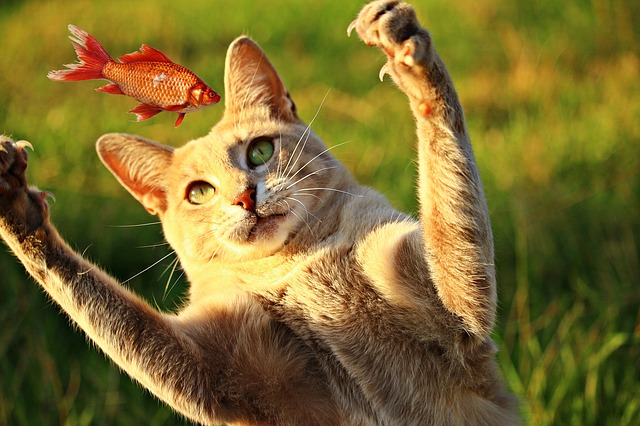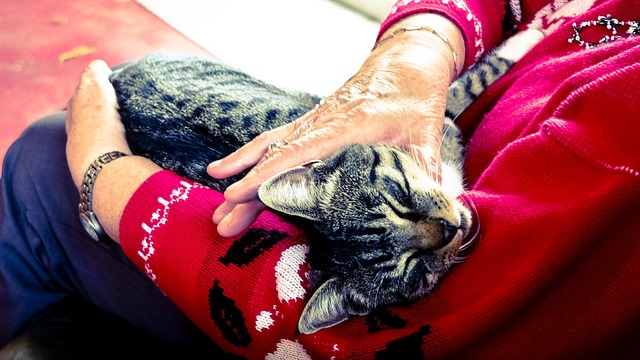Are Wolf Spiders Poisonous to Cats?
Curiosity is a defining trait of your feline friend. As a
While most spider encounters are harmless, there’s a lurking concern about whether wolf spiders, known for their hunting prowess, pose a danger to your beloved
In this article, we’ll explore the interaction between wolf spiders and cats, shed light on the venomous nature of these arachnids, and provide you with essential information to keep your pet safe.
Wolf Spiders: An Overview
Wolf spiders, members of the Lycosidae family, are among the most widespread arachnids on Earth. These agile predators are known for their robust hunting skills and unique eye arrangement, which sets them apart from other spider species.
According to research conducted by the University of Kentucky’s Department of Entomology, wolf spiders are primarily ground-dwelling creatures, often found in grassy areas, forests, and even our homes.
The Cat ‘s Curiosity
Your
This behavior stems from their evolutionary history as hunters, and it’s important to understand the potential risks they might face during their encounters.
Studies have shown that cats have a natural attraction to insects, which they consider as prey. This curiosity can sometimes lead to a
As per research published in the “Journal of Arachnology,” wolf spiders, like other spiders, may bite when provoked or cornered[^2^]. Their venom is primarily designed to immobilize their prey, and its effects on cats can vary depending on the species of wolf spider and the individual
So, you may wonder, are wolf spiders poisonous to cats? Let’s delve deeper into the complexities of this interaction to provide you with a clear picture of the potential risks and safety measures for your feline companion.
Understanding Spider Venom
To comprehend the potential threat of wolf spiders to your
These toxins are primarily used by spiders to immobilize and digest their prey, and they can vary widely in composition and potency across different spider species.
Research from the University of California, Riverside, indicates that the venom of wolf spiders typically contains neurotoxic components designed to paralyze and subdue their prey.
While wolf spider venom is adapted for subduing insects, it can have different effects on mammals, such as cats.
Wolf Spiders and Venom
Are wolf spiders venomous? The answer is yes, but the extent of their venom’s toxicity varies. The majority of wolf spider species do possess venom, which they use for hunting.
However, not all wolf spider venoms are equally potent. Some species have relatively mild venom, while others pack a more powerful punch.
Wolf spider venom typically affects their prey by causing paralysis or immobilization, allowing the spider to subdue and ultimately consume its catch.
When it comes to cats, the potential risks depend on several factors, including the specific wolf spider species and the
Recent studies published in the “Journal of Venomous Animals and Toxins including Tropical Diseases” have documented cases of cats being bitten by wolf spiders.
These encounters usually occur when a
The effects of a wolf spider bite on a
The Wolf Spider-Cat Interaction
If you’ve ever wondered whether your
This can provoke the spider, potentially leading to a defensive bite. The result of such an encounter depends on various factors, including the spider’s size, the species, and the
In the next section, we’ll explore the potential consequences of a wolf spider bite on a
Are Wolf Spiders Poisonous to Cats?
Now, let’s address the pressing question: Are wolf spiders poisonous to cats? In the context of cats, the term “poisonous” is slightly different from how it’s applied to humans.
Wolf spider venom is primarily designed to subdue and digest their prey, but it may not necessarily be deadly to your feline companion.
Read more: Can you get rabies from a cat scratch?
The severity of a wolf spider bite on a
You might also like: Best omega 3 for cats
In most cases, a wolf spider bite on a
If your pet gets bitten by a wolf spider and displays unusual symptoms, it’s essential to consult your veterinarian promptly. They can assess the situation and provide appropriate care, which may include antihistamines or pain relief medication.
Read more: Overweight cats – hidden causes and solutions
Best Products For Eliminating Wolf Spiders
| Product Image | Product Name / Primary Rating / Price | Primary Button |
|---|---|---|
|
||
|
||
|
Identifying Wolf Spiders and Their Habitats
To minimize the risk of wolf spider encounters, it’s beneficial to be able to identify these arachnids and their habitats. Wolf spiders have unique characteristics, including robust bodies and prominent eyes, making them distinguishable from other spider species.
Common places to find wolf spiders include gardens, grassy areas, woodpiles, and even indoors. If you live in an area known for wolf spiders, consider taking precautions to reduce the likelihood of
What to Do If Your Cat Encounters a Wolf Spider
In the event that your
While most wolf spider bites on cats are not life-threatening, it’s essential to monitor your pet for any unusual symptoms and seek veterinary care if needed.
In cases of mild irritation, you can clean the bite site with a gentle antiseptic and apply a cold compress to reduce swelling. However, always consult your veterinarian for guidance. In the rare event of an allergic reaction or severe symptoms, immediate medical attention is crucial.
Read more: How long do cats nurse?
Frequently Asked Questions about Wolf Spiders and Cats
Is a wolf spider bite harmful to humans?
While wolf spiders can bite humans, their bites are typically not medically significant and cause mild irritation at most.
Can wolf spider venom cause severe allergic reactions in cats?
Although it’s rare, wolf spider bites on cats can lead to allergic reactions. If your
How can I distinguish a wolf spider from other spider species?
Wolf spiders have robust bodies, prominent eyes, and a distinct pattern of two dark stripes on their cephalothorax.
What are the symptoms of a wolf spider bite in cats?
Common symptoms include localized swelling, redness, and discomfort at the bite site.
Are there any home remedies to treat a wolf spider bite on a cat ?
It’s best to consult a veterinarian for professional guidance, but you can clean the bite site with a gentle antiseptic and apply a cold compress for mild cases.
Can wolf spiders be found in urban areas?
Yes, wolf spiders can be found in urban areas, especially if there are grassy or natural spaces nearby.
Do wolf spiders have any natural predators?
While birds and other insects might prey on wolf spiders, they do not have many natural predators due to their hunting prowess.
Final thoughts
While wolf spiders are indeed venomous, the extent of their toxicity to cats varies. Most
Keep an eye on your
As a responsible pet guardian, you can take steps to reduce the risk of spider encounters and provide a safe environment for your
You might also like: Common household risks to protect your kitten from
Resources
For further information on wolf spiders and their interaction with cats, consider the following resources:
- University of Kentucky Department of Entomology
- Journal of Arachnology
- Journal of Venomous Animals and Toxins including Tropical Diseases
Remember that being informed and proactive can make a significant difference in ensuring the well-being of your four-legged friend.
